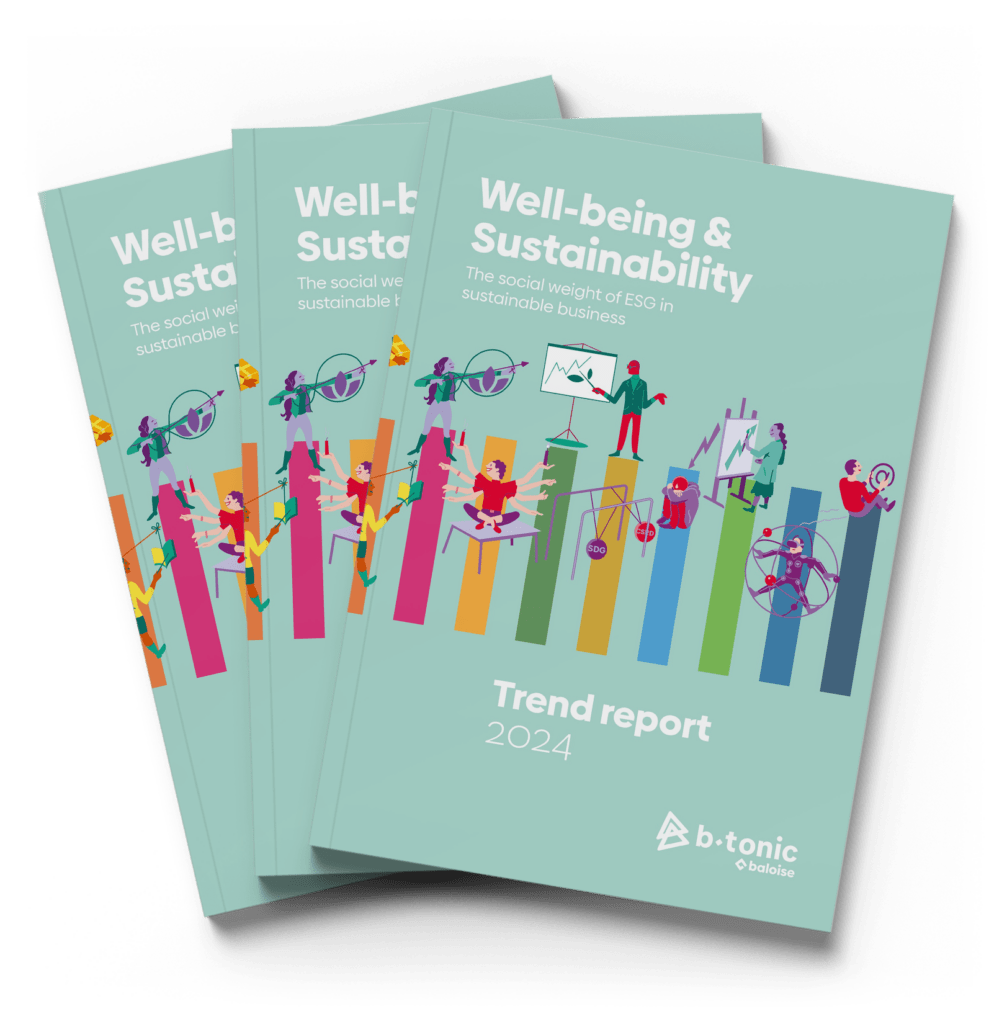A long-term ill person that doesn’t participate in a re-integration programme will lose part of their sick pension. The Chamber has approved of a law, of which the measures will apply starting from 1 January. The employer faces a fine as well. This financial empowerment fits in the Back to Work (BtW) plan of minister Vandenbroucke. With this plan, the government wants as many ‘fit for work ill people’ going back to work.
Today a employee that is unfit to work due to health problems is paid in the first month by the employer. After that month he falls back onto 60% of his last earned pay by the health insurer. In our country there are currently almost 500.000 long-term ill people, which are employees that are unfit to work for over a year. Needless to say, this costs a lot of money ánd is a chronic societal problem.
In 2019, we spent more than 1.5 billion euros on benefits for long-term unfitness to work due to depression or burnout. Post-covid, this amount will only increasy exponentially.

Empowerment of the employees
Research prove that it is important to get started on ‘working on work’ when someone is ill, because this increases the chance of an easy and sustainable re-integration into the labour market. That is why the BtW plan focuses on the support programme.
The new law wants to encourage employees that have been declared unfit to work to particpate in a ‘basic form of collaboration’. By means of an evaluation of the medical situation and a conversation about the possibility of work resumption.
In concrete terms, collaboration is requested in two areas:
- The employee needs to disclose the necessary information for the (first) assessment of his disease process. He will be assisted in this by a Back to Work coordinator. If he does not comply with the request of information, the employee will be invited by the advising physician for a medical examination, so the necessary information can be gathered.
- The employee must respond to the Back to Work coordinator’s request for a first contact moment in the context of the Back to Work programme.
They also included an additional incentive: if the long-term ill person does not respond to these invitations and thus does not indicate a legitimate reason for his absence, he will not receive part of the benefit. The practical conditions to withholding and the exact percentage are not currently known, but the current BtW plan mentions maximum 2,5%.
The law was passed 22 September 2022, but it has not yet been published in the BS/MB.
The law will take effect 1 January 2023 and will apply to those whose period of primary unfitness starts 1 January 2023 at the earliest.
The employer risks a fine too
The BtW measures function as a double-edged sword. The employers are partially responsible. Companies – with 50 employees on average – with an excessive influx of long-term unfitness to work (disability) of their employees (younger than 55 and at least 3 years on the payroll of that company) will pay a specific employer contribution of 0.625% on the total of the quarterly pay (so 2,5% yearly).
On the basis of the first simulations, today about 190 companies would have to pay a quarterly contribution of 1,275 million euros. The first notices will be sent in 2022 (immediately after publishing the regulation texts). The first contribution will be calculcated in the second quarter of 2023.
The law is still pending in the Chamber.
Societal win
Aside from the cost that is paired with long-term illness, the employee will naturally benefit from going back to work.
Research confirms that a ‘good’ job, tailored to the various possibilities and wishes of the employee, has a positive effect on his mental health. People who work and feel valued because they can contribute, contribute to the well-being of all citizens. The societal profit is big. Companies are realising more and more that it is crucial to organise work in such a way that employees do not fall out long-term.
For HR managers, leaders and entrepreneurs, employee well-being will be the top priority in the upcoming years. As shown by research of SD Worx in 14 European countries, among others Belgium. The reason is self-evident: happy and healthy employees are more motivated and… fall out less quickly.

Digital disconnection becomes a right
The law also wants to restrict the use of digital tools for the purpose of a better balance between the private and the professional life. This enables the policymaker to fight psychosocial risks such as burnout.
The law decides that a collective labour agreement must establish the right to digital disconnection, by stimulating companies to restrict the use of digital tools. This law has a positive impact on the quality of work, as these measures will allow the compliance of restrictions regarding working hours, rest periods and yearly vacation. A better balance between the private and professional life follows automatically, which limits psychosocial risks such as burnout.
The law is still pending in the Chamber.





